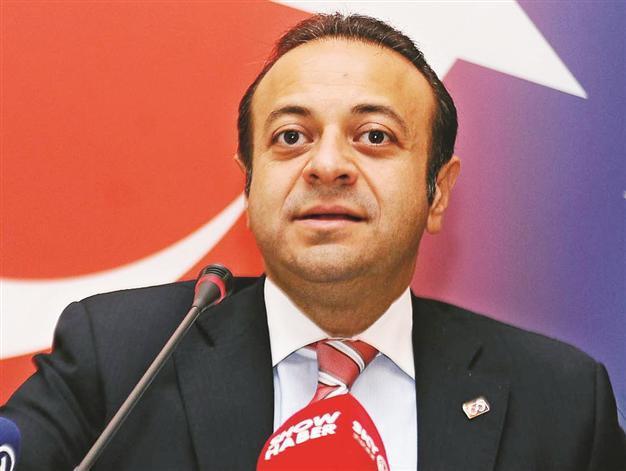Turkey reveals own EU ‘progress report’
ANKARA

The EU’s report on Turkey in 2012 was full of ‘bigoted, one-sided and baseless attitudes,’ according to EU Minister and Chief Negotiator Egemen Bağış. DHA photo
The Turkish EU Ministry has issued its own progress report concerning the country’s EU membership progress, in reaction to the 2012 edition of the bloc’s annual report, which Ankara called “subjective.”
Contrary to what the EU’s progress report said, Turkey’s own progress report underlines improvements in human rights and the rule of law in 2012.
“The report is prepared not only as a reaction to the EU’s progress report, but also to share our country’s determination on reforms,” EU Minister Egemen Bağış said in a written statement yesterday announcing the progress report drafted by his ministry.
Ankara plans to continue drafting its own progress reports in upcoming years, the minister added.
The EU’s report on Turkey in 2012 was under the shadow of “bigoted, one-sided and baseless attitudes,” Bağış said.
In its report, released Oct. 10, the EU’s executive body expressed serious concerns about Turkey’s progress in meeting the political criteria for full membership in the bloc, paying significant attention to freedom of expression, assembly and association, lengthy prosecution and detention periods and the failure to find a political solution to the Kurdish issue.
Through amendments in 2001, 2004 and 2010, Turkey has changed nearly one-third of the existing 1982 Constitution and made progress on the issues of rule of law, democracy and human rights, Turkey’s self-drafted report said.
Since the ruling Justice and Development Party took power in 2002, the government has enacted nearly 2,000 pieces of legislation, according to the report.
Political reforms of the last two years were drafted on the basis of constitutional amendments following the referendum in September 2010.
The political criteria section of Turkey’s self-drafted progress report cited the third judicial reform package and said the reform enabled the delay of execution of sentences for crimes committed through the press or by other means of freedom of expression. The government is working on the fourth judicial reform package in order to advance freedom of expression and the press, it added.
The imprisonment ratio of 9.2 percent in 2006 has decreased to 23.5 percent, and 33,500 people have been released from prisons.
Citing recent legislation, the report said the government had paved the way for the use of all languages, rather than just Turkish, during visits to prisoners, and to let political parties conduct election campaigns in languages other than Turkish.
The Constitutional Court started to accept individual applications in September 2012.
The government introduced Kurdish as elective “Living Languages and Dialects” courses in a new education reform known as the “4+4+4 system.”
